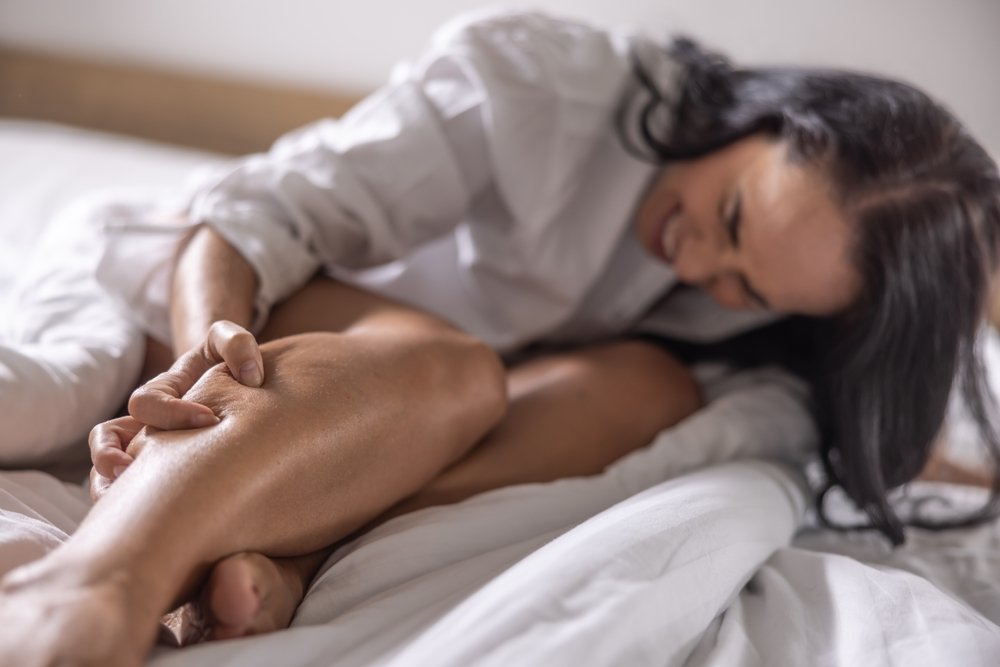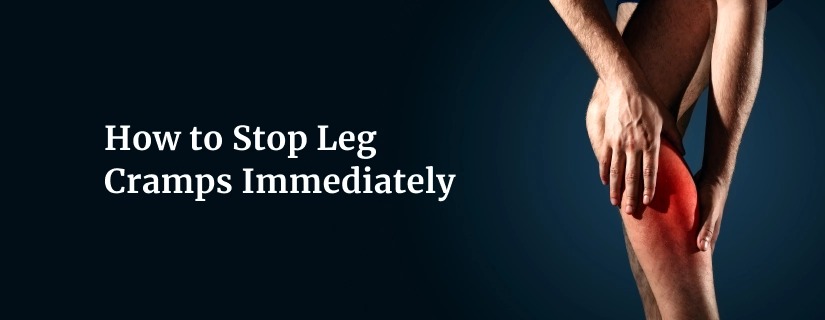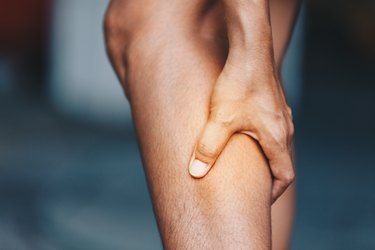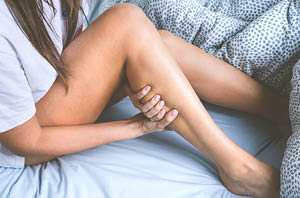I crampi alle gambe, in particolare di notte, possono disturbare il sonno con dolore improvviso e acuto. Sebbene i crampi alle gambe siano comuni e di solito innocui, possono influire sulla qualità del sonno e sul benessere generale. Ecco 10 rimedi efficaci per aiutarti a prevenire e alleviare i crampi alle gambe durante la notte.
Cosa sono i crampi alle gambe?

I crampi alle gambe sono contrazioni muscolari involontarie che causano irrigidimento e dolore improvvisi, di solito al polpaccio, al piede o alla coscia. Possono durare da pochi secondi a diversi minuti. I crampi notturni alle gambe, o crampi alle gambe notturni, sono episodi che si verificano mentre si riposa o si dorme. Questi possono svegliarti e farti sentire dolorante. La maggior parte dei casi di crampi alle gambe segnalati si verifica di notte.
Cause comuni di crampi alle gambe durante la notte
Diversi fattori possono contribuire ai crampi alle gambe durante la notte, tra cui:
- Dehydration
- Electrolyte Imbalance (potassium, magnesium, calcium, and sodium deficiencies)
- Muscle Overuse or Fatigue
- Medications (like diuretics and statins)
- Pregnancy
- Medical Conditions (diabetes, kidney disease, thyroid issues)
- Age (older adults are more prone)
10 rimedi per fermare i crampi alle gambe di notte

- Stay Hydrated
- Dehydration is a common cause of muscle cramps. Ensure you’re drinking enough water throughout the day to stay hydrated. Avoid alcohol close to bedtime, as it dehydrates the body and may contribute to cramping by causing nutrient deficiencies and muscle tissue damage.
- Stretch Before Bed
- Gentle stretching, especially of the calf muscles, before bedtime can help prevent cramps. One effective stretch is the calf stretch against a wall: Stand facing the wall with your hands pressed against it, and step one leg back, keeping it straight, while bending the front knee and holding the stretch for 30 seconds. Repeat with the other leg.
- Stretch During a Cramp
- If a cramp strikes at night, stretching the affected muscle can provide relief. For calf cramps, sit and pull your toes toward your head, or try a forward lunge to stretch the cramped leg. Standing on your toes for a few seconds may also help.
- Apply Heat
- Heat helps relax tight muscles. Use a heating pad, warm towel, or hot water bottle on the affected area. A warm bath or shower before bed can also soothe muscles and reduce the chance of nighttime cramps.
- Massage the Muscle
- When a cramp occurs, gently massage the muscle with both hands to ease the tension. This can help loosen the muscle quickly and reduce pain.
- Magnesium Supplements
- Magnesium deficiency may be linked to muscle cramps. Consult your doctor before taking supplements, but if approved, magnesium could help prevent cramps. Magnesium plays a key role in muscle contraction and nerve function.
- Eat Potassium-Rich Foods
- Ensure your diet includes enough potassium, as low potassium levels can contribute to cramps. Foods rich in potassium include bananas, oranges, and potatoes.
- Use Proper Bedding
- Tight-fitting sheets or blankets can restrict movement and contribute to cramps. Sleep under loose bedding to avoid compressing the muscles or nerves in your legs.
- Walk or Shake the Leg
- Walking or moving your leg when cramps occur can increase blood flow to the muscles and ease the cramp. Walking helps open up small arteries in the legs, which improves circulation.
- Avoid Prolonged Sitting or Standing
- Sitting or standing in one position for extended periods can increase the risk of cramps. Try to move regularly throughout the day to keep blood circulating and avoid muscle strain or tension.
Considerazioni finali

I crampi notturni alle gambe possono essere dolorosi e dirompenti, ma rimanendo idratati, mantenendo una dieta equilibrata, facendo stretching regolarmente e seguendo questi semplici rimedi, puoi ridurre la frequenza e l’intensità dei crampi alle gambe. Se i crampi alle gambe persistono, consultare un operatore sanitario per escludere eventuali condizioni mediche sottostanti.


